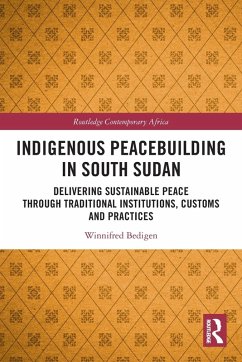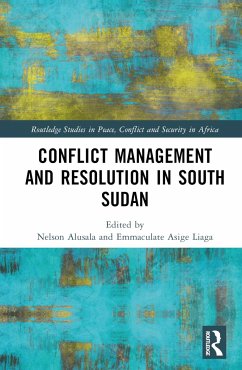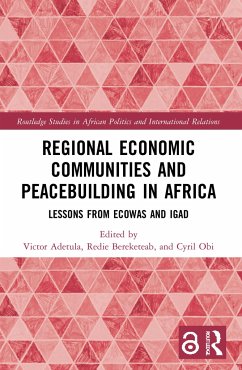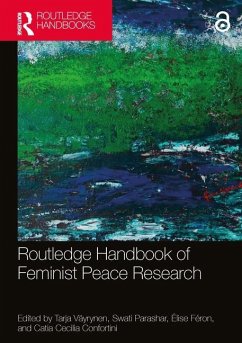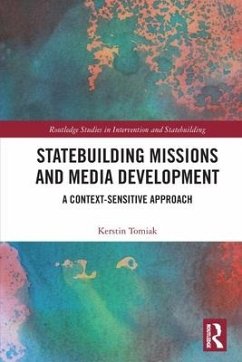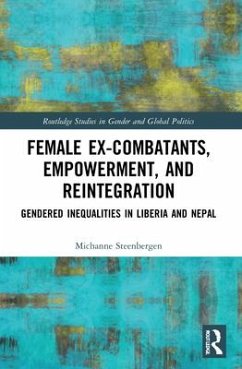
Military Integration during War-to-Peace Transitions
South Sudan's Attempt to Manage Armed Groups, 2006-13
Versandkostenfrei!
Versandfertig in 6-10 Tagen
43,99 €
inkl. MwSt.
Weitere Ausgaben:

PAYBACK Punkte
22 °P sammeln!
In the 1960s, only 10% of peace agreements included some element of political-military accommodation - namely, military integration. From Burundi to Bosnia to Zimbabwe, that number had increased to over 50% by the 2000s. However, relatively little is understood about this dimension of power-sharing often utilized during war-to-peace transitions. Through an examination of the case of South Sudan between 2006 and 2013, this book explores why countries undergoing transitions from war to peace decide to integrate armed groups into a statutory security framework. This book details how integration c...
In the 1960s, only 10% of peace agreements included some element of political-military accommodation - namely, military integration. From Burundi to Bosnia to Zimbabwe, that number had increased to over 50% by the 2000s. However, relatively little is understood about this dimension of power-sharing often utilized during war-to-peace transitions. Through an examination of the case of South Sudan between 2006 and 2013, this book explores why countries undergoing transitions from war to peace decide to integrate armed groups into a statutory security framework. This book details how integration contributed to short-term stability in South Sudan, allowing the government to overcome wartime factionalism and consolidate political-military power prior to the referendum on self-determination in 2011. It also examines how the integration process in South Sudan was flawed by its open-ended nature and lack of coordination with efforts to right-size the military and transform the broaderdefense sector, and how this led the military to fragment during periods of heightened political competition. Furthermore, the book explains why integration ultimately failed in South Sudan, and identifies the wider lessons that could be applied to current or future war-to-peace transitions.
This book will be of great interest to students of war and conflict studies, peacebuilding, post-conflict reconstruction, African security issues, and International Relations in general, as well as to practitioners.
This book will be of great interest to students of war and conflict studies, peacebuilding, post-conflict reconstruction, African security issues, and International Relations in general, as well as to practitioners.






